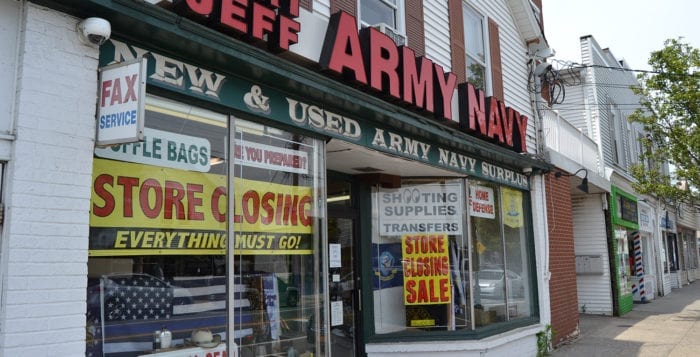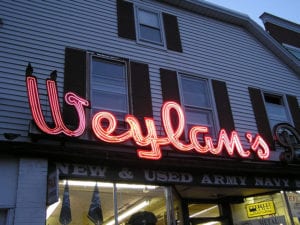The Village of Port Jefferson has a lot of apartments on its plate, both those developments already settled into their foundations and those still in the hopper.
So far, the experience for Port Jeff community members and officials alike has not left the greatest impressions.
Some points have become so contested that village officials voted to change the code to prevent similar experiences in the future.
The village held three public hearings Sept. 3 to propose changes to the village code. Two code changes were in direct response to complaints of the development of separate apartment complexes. One code change was for payment in lieu of parking and the other on what counts for reducing the recreational space fee owed to the village.
In the latter case, the village has moved to excise rooftop decks, patios and other common areas not accessible to the general public from being considered park or recreational facilities for the purposes of developers reducing the parkland fee paid to the village.
Mayor Margot Garant said the change has come after review of comments from the community, especially in regard to the fee paid by Tritec Real Estate Company, of which the mayor said is over $50,000, is still owed to the village.
“As we cannot enjoy the rooftop deck at Shipyard, we don’t think that should be taken into consideration when taking a calculation of the fee,” she said.
In August 2018, the village passed a resolution reducing the fee levied on Tritec for not including sufficient public green space, with the mayor arguing at the time the desire to have developers build amenities and green space for use by their tenants. At that time, Trustee Bruce Miller vehemently disagreed with the decision.
Just over a year since then, at the Sept. 3 meeting, Garant argued for a “bright line” code for the planning board to take into account in future developments, this time specifically pointing to the Tritec development for the code change.
Not all Port Jeff residents saw this as a complete victory. Michael Mart, a longtime Port Jefferson resident and regular watchdog, said he applauded the change, but argued the code as it previously stood could have been interpreted to prevent developments like Shipyard from getting recreation fees lowered for private amenities.
“The planning board members shouldn’t make the difference because the code governs what the planning board does,” Mart said.
Garant disagreed.
“[The recreation fee] was meant to make sure the village was getting an appropriate recreation fee for the stress that it puts on our public amenities,” she said. “Not to subtract the private amenities. I don’t think the language is strong enough as it exists to make that a protocol.”
Barbara Sabatino, a member of the planning board, said it had been informed the facilities would not be off limits to nonresidents.
“At the time we made that decision we were informed by Tritec that those outside decks that have view of the harbor could be accessed by the public, that it wasn’t Tritec residents only,” she said.
Representatives of Tritec did not answer multiple phone calls for comment.
Mart said the onus should not be just on Tritec for “pulling the wool,” but on the village and planning boards for not enforcing their vision of the code.
The mayor said the village is still owed the fee from The Shipyard, which she added they can only pursue after the developer files the deeds with the Suffolk County Clerk’s Office.
“I can’t really say when those deeds are recorded, but as far as I’m concerned, I want my money,” she said.
Also discussed in the meeting was a change to the code on payment in lieu of parking, citing another apartment development in the space that Cappy’s Carpets once occupied.
In a March public meeting, attorney’s representing Brooks Partners LLC, a subsidiary of Port Jefferson-based Gitto Group, said the Cappy’s Carpets project, known as Brockport, would have to pay for four spaces in payment in lieu of parking. The project is set to have 78 spaces of parking for its residents and for those working in the retail stores set to be located under the new apartments.
The New York State Department of Transportation recommended removing two on-street parking stalls along Main Street for safer access to the property on Main Street. This did not sit well with some community members who saw it as a loss of parking spots in a village desperate for more lot space.
Garant attended that March meeting and agreed with those who criticized the project for the loss.
“But for that project we would still have two on-street parking spaces,” she said.
Bruce D’Abramo, the only board member to vote “no” on this code change, said it was out of the developers’ hands, having been ordered through the state DOT.
“In the case we are talking about the applicant who had no choice in this matter, it was the DOT who removed two on-street parking spaces on a state road that the village has no real control over anyway,” he said.
Mart, again, asked why the planning board did not make it a condition of their approval of the building’s site plans to mandate paying for the loss of the on-street spots.
“The planning board had the opportunity to make it a condition on the approval,” he said.
Chris Bianco, an attorney working on behalf of the village alongside Village Attorney Brian Egan, said the planning board would be on shaky ground if it made that a condition under the current code.
Garant acknowledged the change in code could present legal trouble down the road.
“I know everybody’s hands are kinda tied,” she said. “Somebody can certainly challenge me on that and take me to court, but I would rather be on the upside of that than downside of that.”











